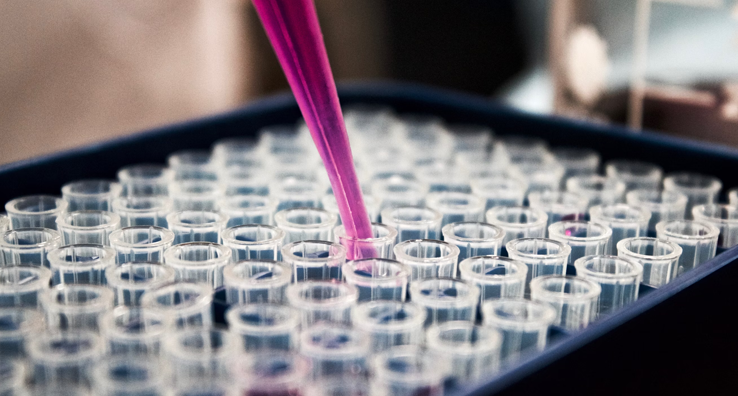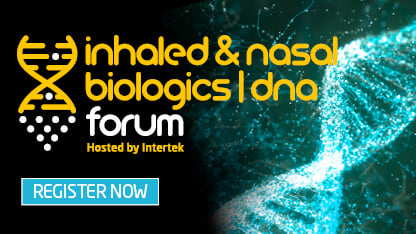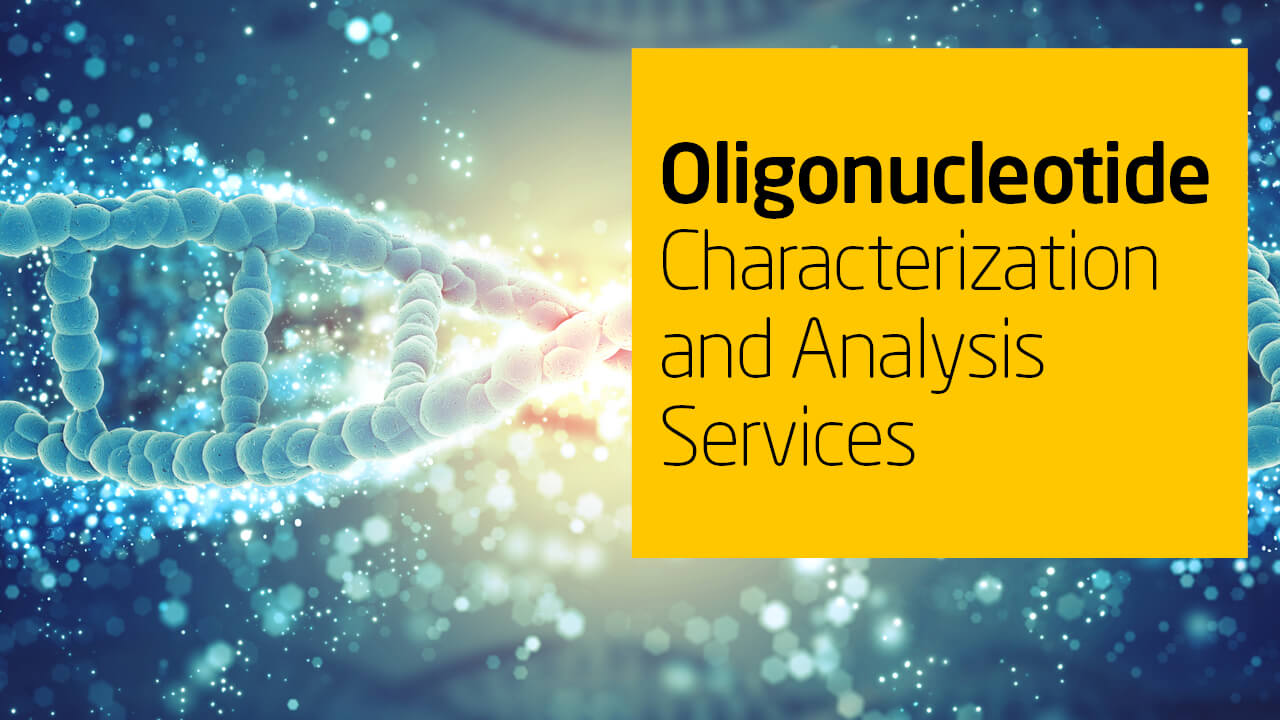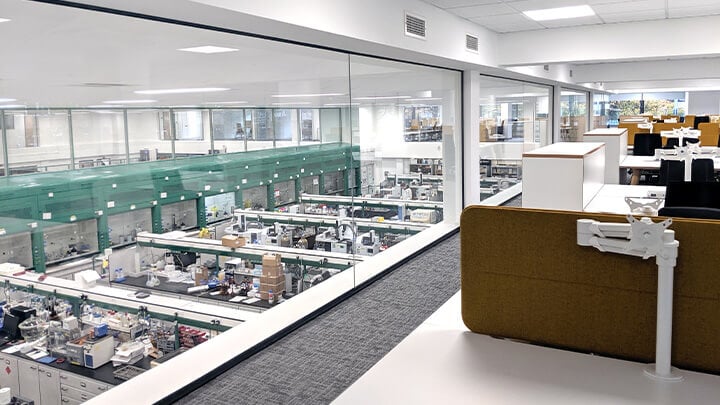Peptide characterisation and formulation services supporting quality, stability, manufacturability and bioavailability studies in peptide drug development.
Peptide characterisation testing is key to successful peptide drug development. Peptides drugs are experiencing increased industry interest due to advancements in their design and manufacture, with peptides of increasing complexity becoming important against a variety of disease targets. Drug products such as glucagon, teriparatide, icatibant, exenatide glatiramer acetate, liraglutide, insulin, leuprolide, somatostatin offer potent, specific, effective, yet safe, medicines. Peptides are a unique category of biopharmaceutical compound. Playing on the strengths of both small molecules and protein therapeutics, they combine the size of small molecules and their ability to penetrate cell membranes with a protein’s high specificity for its target. This enables peptides to interfere with protein–protein interactions (PPIs) and target or inhibit intracellular molecules. Small molecules struggle with larger binding sites, whereas proteins and antibodies cannot cross over the cell membrane to reach such target sites.
The complexity in characterizing peptides stems from the fact that this class of products can be regarded as conventional chemical molecules, biological entities or biosimilars. The US Food and Drug Administration (FDA) considers all biopolymers composed of 40 or fewer amino acids to be peptides. Within that set, those containing 10 or more are classed as polypeptides. Additionally, developing peptide for therapeutic use has unique scientific challenges consistent with the unique physicochemical properties of peptide molecules. The identification of suitable characterization tools is required to develop peptide formulations with the appropriate properties for a safe and effective therapeutic. A detailed understanding of the structure and physicochemical properties is important to understand quality, stability and consistency across batches.
Peptide Therapeutic Analysis
We provide regulatory-driven, phase-appropriate chemical and biophysical analysis in support of CMC programs which include confirmation of the peptide identity, assay, determination of degradation products, and identification of degradation products that grow above the thresholds set in the ICH guidelines. Since peptides might or might not have a defined secondary/tertiary structure we design a custom method for the analysis of each individual product using suitable analytical techniques for characterisation.
Peptide Identity and Sequence
We apply high performance liquid chromatography (reverse phase, RP; normal phase or hydrophilic interaction liquid chromatography, HILIC) to separate and quantify peptides and related degradation products, whilst ultra-high performance liquid chromatography (UHPLC) can offer improved resolution and sensitivity compared in some cases. We also use ion exchange chromatography, IEC or IEX, capillary electrophoresis, (CE) and size exclusion chromatography, (SEC).
We apply mass spectrometry (LC-MS) to peptide sequence identification which offers sensitivity and the potential to distinguish between isobaric residues. With mass spectrometry analysis of both intact and digested peptides we can confirm sequence identity. By comparing the confirmed sequence to a digested reference standard, we can determine any amino acid modifications, degradation products, and post-translational modifications. Our scientists are experts in selecting suitable digestion strategies and methods which optimise the peptide sequence coverage.
Biophysical Characterisation
Our biophysical characterization programs for peptides focus on the changes in secondary structure and potential for self-association, which may lead to the formation of irreversible and reversible species in solution. To examine secondary structure, we apply Circular Dichroism (CD), 1D Nuclear Magnetic Resonance (NMR) (1H and C13) and 2D NMR (TOCSY and NOESY) as well as Fourier Transform InfraRed (FTIR) spectroscopy. For tertiary structures and aggregation studies we apply Intrinsic Fluorescence, Dynamic Light Scattering (DLS), SEC-MALS, light obscuration, cryo transmission electron microscopy, analytical microscopy, and SV-AUC. An assessment of stability is assessed by Differential Scanning Calorimetry (DSC) and thermal denaturation by CD.
Peptide Stability
Peptide stability is of particular focus as peptides containing charged residues are hygroscopic and are prone to moisture sorption and exposure to light. Our ICH stability programs integrated testing and storage with photo stability (ICH Q1B Options 1 & 2) and an extensive capacity and a range of conditions. For degradation products in particular we utilise mass spectrometry to look for evidence of enzymatic degradation, formation of self-associating oligomers, deamination proteolysis, glycosylation or oxidation of residues.
Peptide Bioactivity Assays
We also provide bioactivity assays, which probe biological features using in vitro or cell-based assays.
Peptide Formulation Development
Currently, most peptide drugs are administered by the parenteral route as this presents the simplest delivery option for these complex products. Alternative formulations and administration routes are however gaining increasing interest in order to provide targeted delivery, improve patient compliance, and improve product stability – these include inhaled, intranasal, oral, transbuccal, and transdermal delivery routes. Our formulation team apply integrated formulation and analytical programs that support the development of peptide formulations with the appropriate stability, manufacturability and bioavailability. Our team are leaders in product formulation for complex delivery technologies, helping you to ensure an optimised formulation specific to your selected delivery technology.
Total Quality Assurance
With our specialist biologics analysis and formulation development capabilities for complex products such as peptide therapeutics, we can help to accelerate your development process, achieve the right data to complete marketing authorisation submissions and support your post-marketing requirements. Bringing quality and safety to life, we apply our Total Quality Assurance expertise to help you to meet and exceed quality, safety and regulatory standards for your biologic development programs.
Pharmaceutical News & Events
- PRESS RELEASE! Intertek partners with CrystecPharma to advance formulation science and accelerate development for dry powder inhalers
- NEW! Blog: Optimising Quality in Pharma Supply Chains
- Determination of Particles in Pharmaceuticals - Article
- Discover our Audit Live Tool for direct access to our scheduled audits
- Extractables/Leachables Lab Tour - Request access
- Medical Device Extractables & Leachables Studies
- Glycosylation Analytical Approaches for Antibody Therapeutics
- Rapid Determination of Low/Trace Level Benzene in Pharmaceutical Excipients and Finished Products




